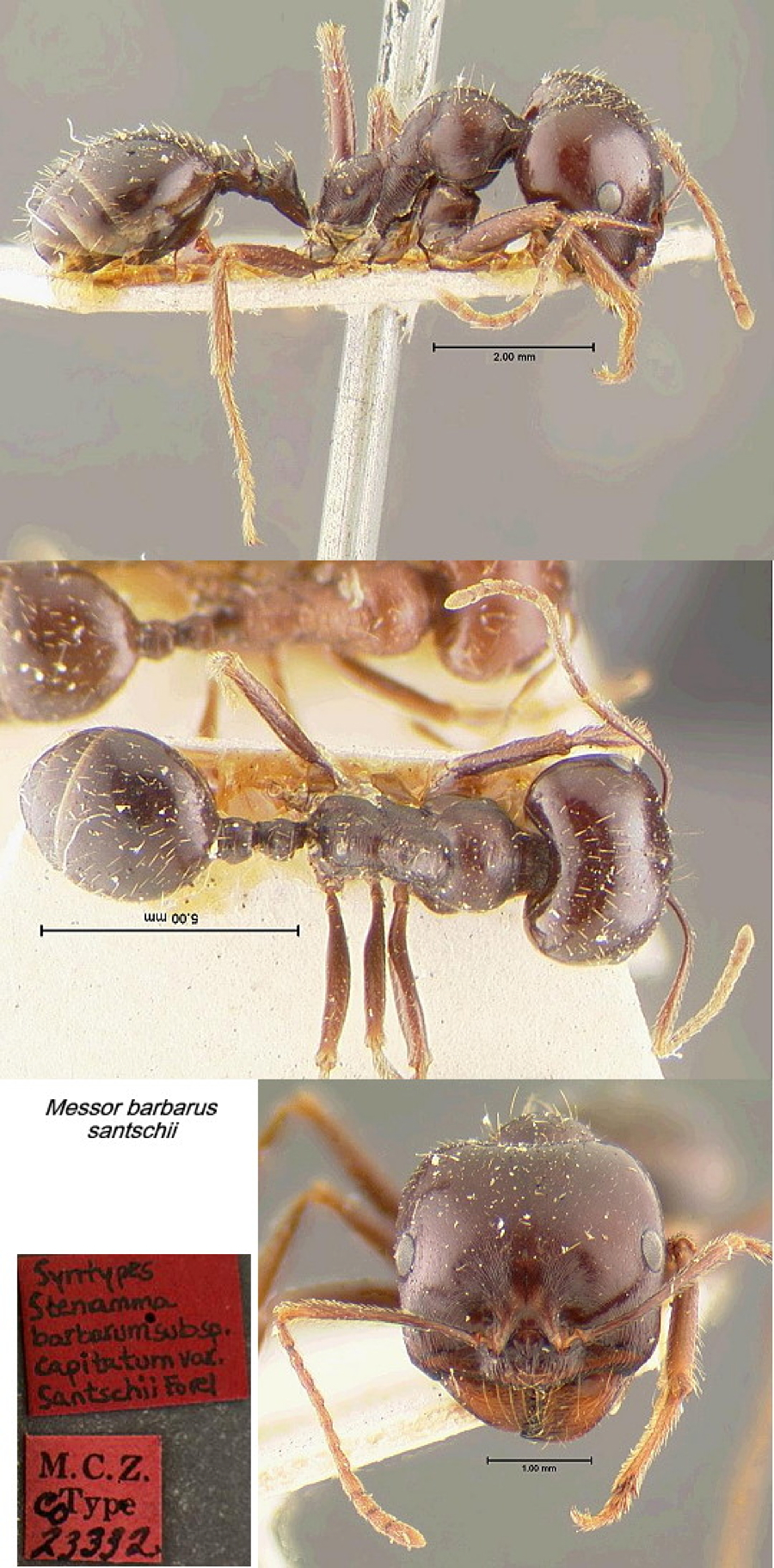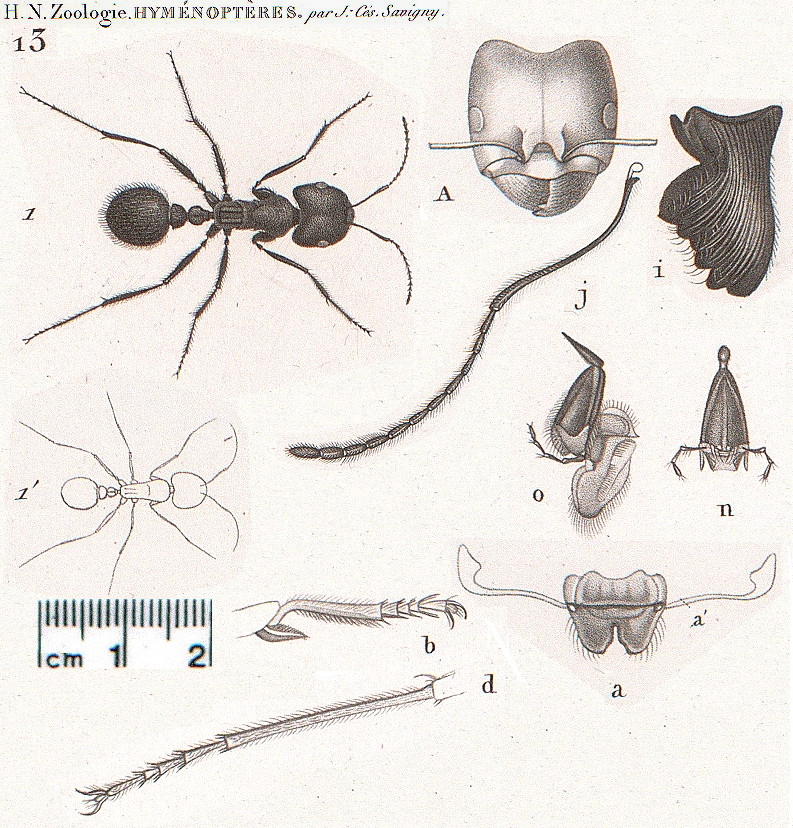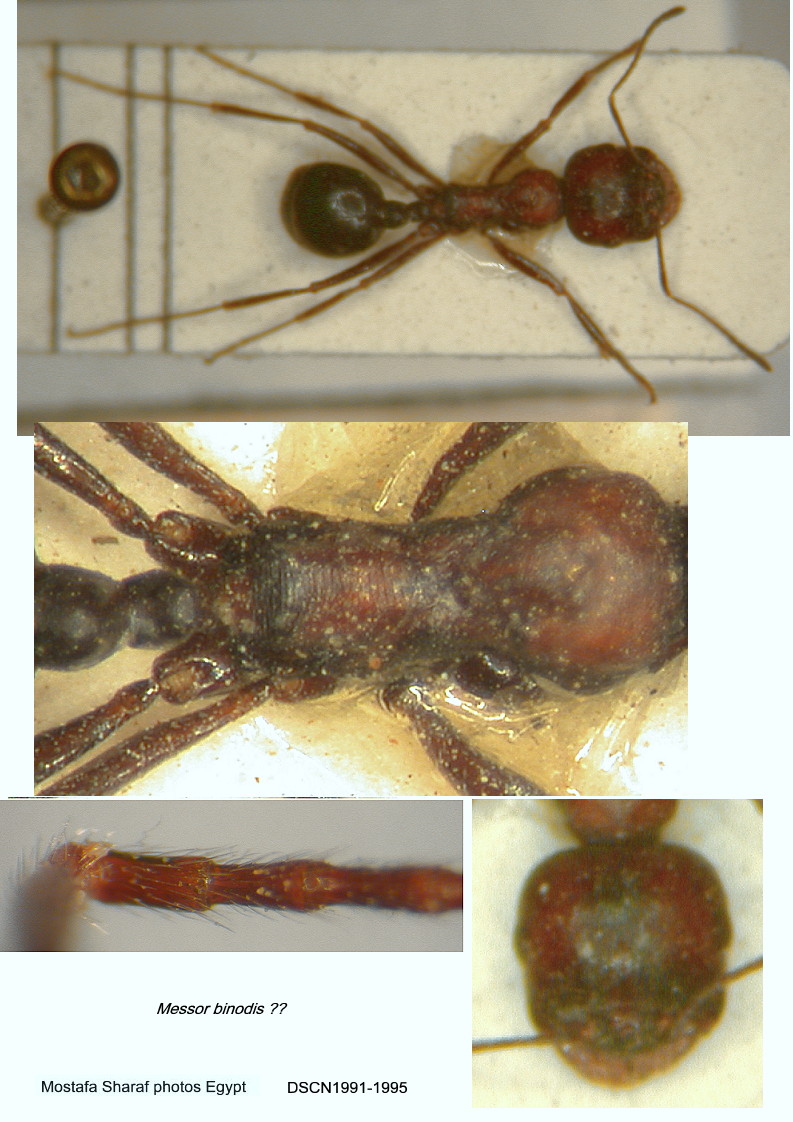Messor binodis (Fabricius)
 Type location Egypt (Formica
binodis, Fabricius, 1763: 413, Fabricius, 1793: 357, worker;
synonymy F Smith, 1858b: 162) Prof Forskahl - no images on Antweb (March 2019) Type location Egypt (Formica
binodis, Fabricius, 1763: 413, Fabricius, 1793: 357, worker;
synonymy F Smith, 1858b: 162) Prof Forskahl - no images on Antweb (March 2019)
subspecies
ambiguus (Messor barbarus L. v. ambiguus n. var, Santschi,
1925g: 342, worker; synonymy Collingwood, 1978: 68) from Tunisia
- see https://www.antweb.org/specimenImages.do?code=casent0913160
santschii (Forel, 1905b: 176, worker; Forel, 1907b:
204,
queen & male; Emery, 1908e: 447, worker; Karavaiev, 1912a: 6, queen
& male) from Tunisia - see below.
|
Fabricius' (1793:
357) repeat description of binodis
is at  . Latreille's (1802c) description of binodis
is at . Latreille's (1802c) description of binodis
is at  . Santschi's (1925g) description of ambiguus
is at . Santschi's (1925g) description of ambiguus
is at  . .
Forel (1905b: 176) defined santschii as a new
variety - TL 4-8.5 mm; like meridionalis and semirufa;
brown, gaster dark brown; subdentate; wholly smooth except for the
propodeum and lateral mesonotum which have weak regular transverse
rugae; petiole node quite narrow and little concave in front, scalloped
at the summit; generally slender; few erect hairs on the body, those of
the tibiae and scapes raised. he added that if the species was not so
variable this might merit race or subspecies status. The Savigny
drawing, Plate 13 (below) shows the same smooth head and broader
propodeum dorsum.
|
 The photomontage of santschii is collated from http://mcz-28168.oeb.harvard.edu/mcz/FMPro?-DB=Image.fm&-Lay=web&-Format=images.htm&Species_ID=23332&-Find. The photomontage of santschii is collated from http://mcz-28168.oeb.harvard.edu/mcz/FMPro?-DB=Image.fm&-Lay=web&-Format=images.htm&Species_ID=23332&-Find.
|
 Egypt
records - Formica binodis reported by Fabricius from Egypt,
possibly collected by Prof. Forskahl but with no other details.
Karavaiev (1911: 4) listed Messor barbarus ss striaticeps E
André; a major and minor workers from "Mokattam-Höhen" near Cairo, with
a large nest in fine rubbish (?) - as striaticeps is now a
species, type location Caucasus, it seems likely that the specimens
were not of that species. Egypt
records - Formica binodis reported by Fabricius from Egypt,
possibly collected by Prof. Forskahl but with no other details.
Karavaiev (1911: 4) listed Messor barbarus ss striaticeps E
André; a major and minor workers from "Mokattam-Höhen" near Cairo, with
a large nest in fine rubbish (?) - as striaticeps is now a
species, type location Caucasus, it seems likely that the specimens
were not of that species.
Savigny's drawing (Audouin, J.-V. 1825-27: Plate
20 Fig 13) appears to show a worker of binodis or santschii,
the former if the proposal of a new species status is correct.
|
 The photomontage is of a specimen from Egypt, photographs
taken by Mostafa Sharaf (DsSCN1991-1995). The photomontage is of a specimen from Egypt, photographs
taken by Mostafa Sharaf (DsSCN1991-1995).
|
|